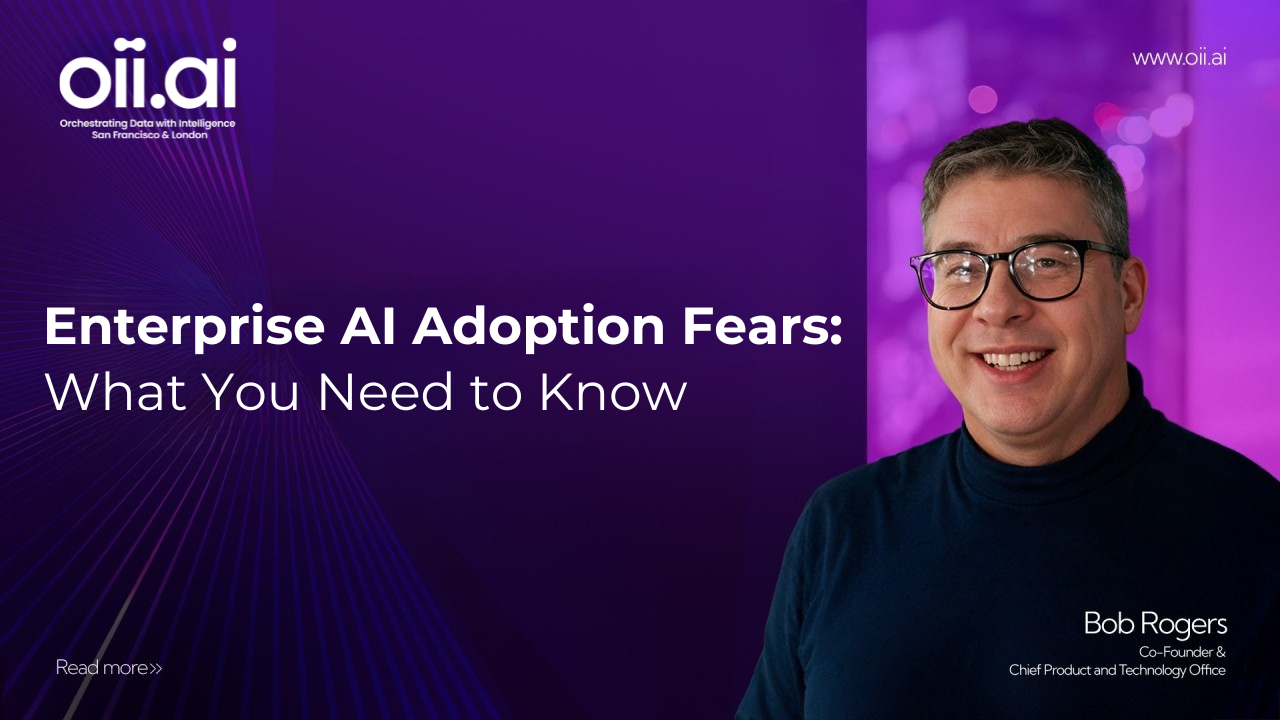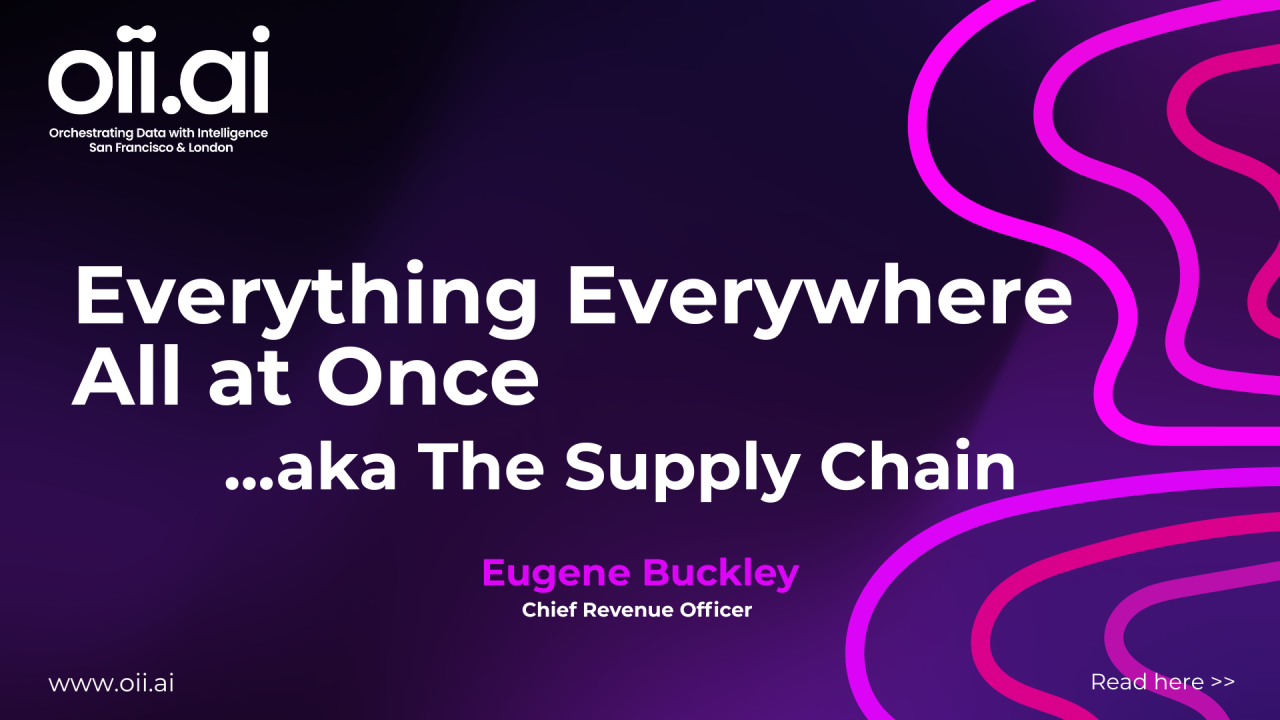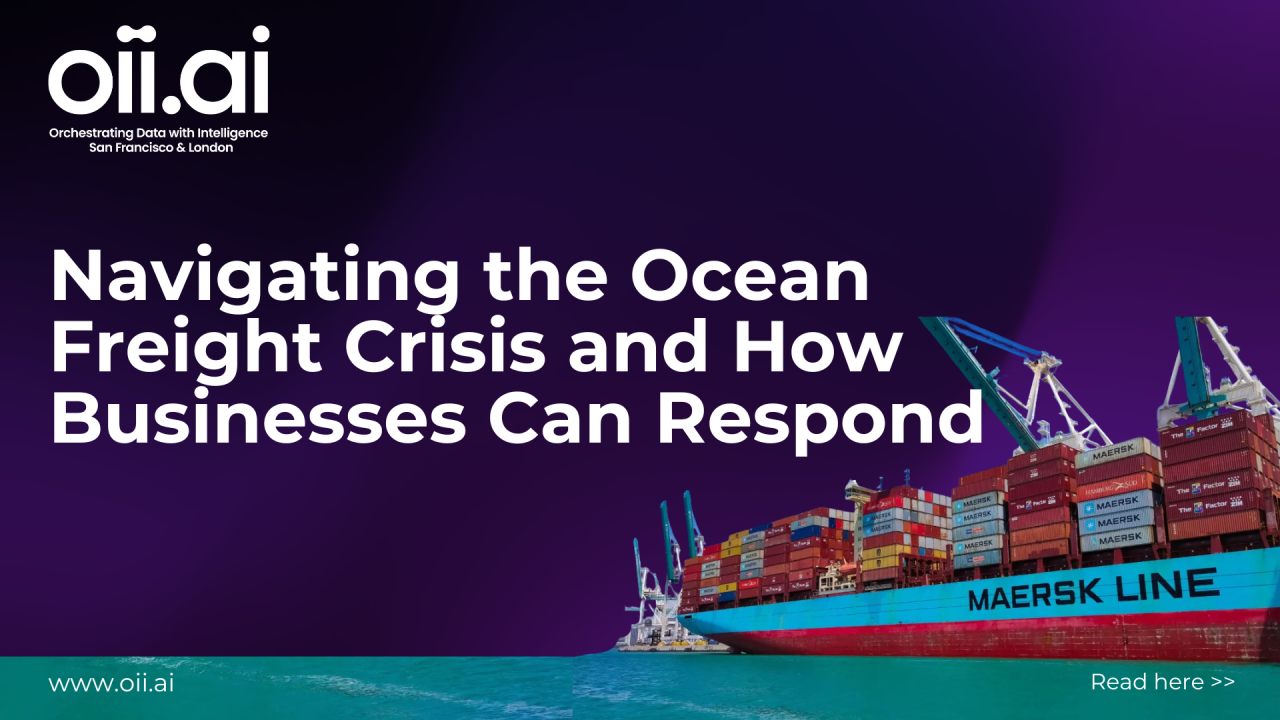In the world of AI, things are moving fast, and organisations that effectively apply new AI solutions will race ahead of their competitors. Of course, those who hesitate will fall behind. When I work with enterprise executives to help them deploy new AI-enabled products, their biggest challenge to taking decisive action is their own “Enterprise AI Fears”.
What are these Enterprise AI Fears? There are three big ones:
1. Garbage In- Garbage Out
2. Security and Data Risk
3. Is my team capable of handling AI?
In this series of articles, I’m going to break down these Enterprise AI Fears, and present ideas for how to overcome them. We’ll start with the first fear I always run into: Data Quality.
Garbage In-Garbage Out (GIGO)
If you’ve worked in enterprise data, analytics, or IT, you’ve repeatedly heard the ominous warning, “Garbage In-Garbage Out” (hereinafter GIGO). The hidden meaning, and fear driver, here is that somehow you can be fooled into believing incorrect or inaccurate data and make poor business decisions as a result.
GIGO is a real concern, and you should never blindly believe that the data going into an AI or analytics application is 100% reliable, but with the right data cleaning and validation technology, these challenges can be easily overcome. The trick is to use advanced AI tooling to identify missing or suspicious data and then automatically suggest appropriate fixes, with human oversight.
When Optii pulls data in from a variety of customer systems, it subjects the data to a battery of AI and machine learning tests to understand how all the data fits together, what the typical data patterns are, and where there might be concerns. One example we see all the time is incorrect Minimum Order Quantity (MOQ) settings, which can either be too large or too small, and often result from inconsistent application of MOQ by product and location in the planning system. Optii will flag concerning values and surface them as “Data Alerts” in the Optii Data Explorer, along with potential recommended solutions. Users can then take specific actions to address these alerts.
When data is missing, Optii can make recommendations for filling in, or imputing, those missing values based on machine learning predictions from our vast data experience. A human operator always validates such imputed values in the Data Explorer, and if the exact value of an imputed data point has a big impact on the financial or service performance of the supply chain, this will be flagged so that the customer can investigate the correct value further.
There is an additional hidden assumption underlying GIGO that many people make, that if there is any “garbage” in their data at all, then all of their outputs will be unreliable. Whether this all-or-nothing assumption is true or not depends on how the application you are talking about actually converts data into insights. A well-constructed probabilistic AI approach will be very robust against modest levels of noise in data. At Oii, we always assume that there is some level of noise or errors in the data we receive from customers, so that our results never depend on perfect data. (We’ve found that perfect data doesn’t really exist!)
The cure for the first Enterprise AI Fear, “Garbage In-Garbage Out” is a healthy dose analytical scrutiny and automated data cleaning, combined with human oversight to ensure that the inputs to enterprise AI-powered decision making are clean enough to generate reliable insights. If you are concerned about GIGO in your enterprise, you are right to be cautious, but with the right AI tools on your side, you don’t have to be paralysed by your fear.






